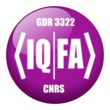Kwiat’s group, Department of Physics, University of Illinois at Urbana-Champaign (UIUC), USA
Head: Prof. Paul G. Kwiat
Quantum information is the physics of knowledge. Contrary to what one might think, quantum mechanics tells us how and when something is measured can change the outcome of an experiment. Even stranger, the physical reality of an experiment is affected by the knowledge of the experimenter—or more precisely, by what can in principle be known. This inextricable link between reality and information leads to intriguing and fantastic possibilities. Examples include teleportation, by which a quantum state can be delivered to a distant place without traveling through the intervening space; quantum computers which instantly break encryption codes; information which can never be copied, only moved and changed; cryptographic techniques whose secrecy is guaranteed by physical laws. Amidst all of these ideas lies the elusive concept of entanglement — the crown jewel of quantum mechanics that violates the fundamental classical assumption that if you take two objects very far apart, what happens to one is independent of the other. Quantum information, in the end, describes not only what can be known, but the subtle effect that knowing has on nature.
Here at the University of Illinois, we are learning how to gain control over these exquisitely sensitive quantum systems. Photons, the tiny bundles that light travels in, act as our window into the quantum world. By using lasers as a source for our photons, we take advantage of one of their special properties: all of the photons emitted from a particular laser are quantum-mechanically identical. This allows the systematic study of how quantum systems react to manipulation, interaction with themselves, and measurement. In addition to investigation these individual photons, we can also create pairs of entangled photons. Each photon in an entangled pair contains information which is totally random, yet perfectly correlated with that of its partner. This seemingly paradoxical behavior is the essence of how quantum mechanics differs from classical mechanics. Our entangled photon source allows us to study the rudiments of quantum computing, is crucial to experiments in quantum cryptography, and provides extremely convincing evidence that the universe does not obey classical laws.




